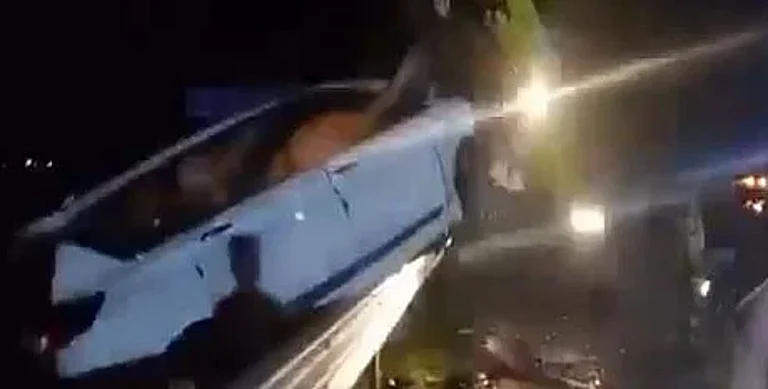My Journey
I was a police officer of the 2012 batch of the Manipur Civil Services and have been involved in many successful crackdowns on drug cartels active in the state. The BJP-led Manipur government appreciated my fight against the drug menace and awarded me with the ‘Chief Minister’s Police Medal for Gallantry’ in 2018. But I returned the honour and opted for voluntary retirement when Lhukhosei Zou was acquitted by a court in 2020. I had arrested the former chairman of the Chandel Autonomous District Council, Manipur, in connection with a drugs case, along with others.
It was much before my stint in the police that I was inspired to fight against drugs. As a patriot, I have always been concerned about the issues that affect the larger public interest. My state has been grabbing headlines for fake encounters. Though the issue of the sale and usage of drugs was going on simultaneously, no one was concerned because those who were involved were not the ones killed by the police.
An International Issue
The northeastern states from Arunachal Pradesh to Manipur have been producers of opium and opioids. Poppies are being grown all over the hills in various regions of north-east India. We have become a production house of drugs.

We also have to look at the issue from an international perspective. The most powerful drug cartels are those operating in China and Southeast Asia. We are but a part of international drug cartels. We export opium and brown sugar processed here to Myanmar and the rest of the country. In Myanmar, the raw material is processed further to produce heroin. From there, it is sent back to us. Basically, the cartels are controlled by Myanmar and China, and we are one of the primary producers of raw material.
The Extent of the Problem
Chinese drug cartels ipso facto control the polity and economy of the region. We cannot fight this with lackadaisical state machinery. We need to clean up the system if we have to deal with the impending war on ‘Narco-terrorism’. Without this step, there is no solution at all.
The issue of drugs in Manipur and in Northeast India is very much under-reported. People here are so accustomed to the situation that we have started believing it to be part of our lives. We have accepted it since the 1980s and we do not regard it as an alarming situation. It is only recently that mainland journalists have started taking interest in the issue. But there has been no significant investigative journalism as far as drugs are concerned, at least until now, because of the hidden nexus between many stakeholders.
When I became a police officer, I discovered the gravity of the situation. I found out that a whopping 92 percent of the total land area of the state was infested with cultivating and storing poppy as well as imported synthetic drugs. These issues were never highlighted before. Law enforcement agencies turn a blind eye to the cultivators of poppy.
The Way Forward
The ‘war on drugs’ in Manipur is a hoax and one of the biggest lies being told to the people. The so-called seizures by the police are merely cover-up operations to show that action is being taken against drugs. These seizures are not even a scratch on the tip of the iceberg. In almost all these cases, one finds that there is no follow-up and so, no cartel leader is arrested.
The sale and use of illegal drugs is a serious socio-economic issue that has been plaguing our society over the past five decades. The problem is that there is a nexus between politicians and poppy cartels. The recent arrest of Manipur police personnel with drugs is just an accidental example of the gravity of the situation. We have to start cleaning up the system to identify those involved in such scandals.
A corrupt police department cannot fight this war. A corrupt government will only breed corrupt police. The problem of drugs is socio-economic and political. Policing alone cannot solve the problem.
(This appeared in the print edition as "Drugs Diary")
(Thounaojam Brinda was a police officer of the 2012 batch of the Manipur Civil Services)





















